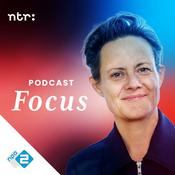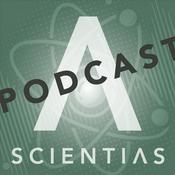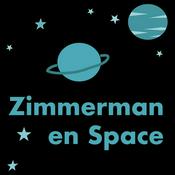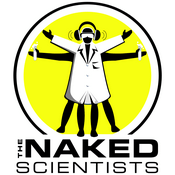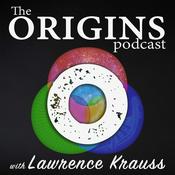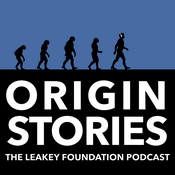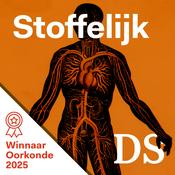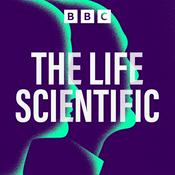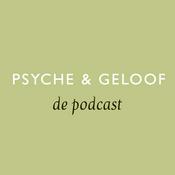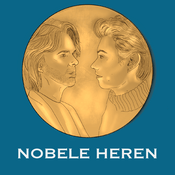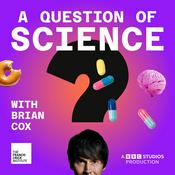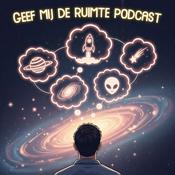71 afleveringen

Harnessing Artificial Intelligence to Fight Infectious Diseases
24-11-2025 | 20 Min.
In 1928, Sir Alexander Fleming uncovered penicillin, an antibacterial compound that would alter the course of medicine. By the 1940s, this miracle drug entered clinical use, and humanity began to rely on penicillin and other antibiotics to treat once-lethal bacterial infections. Despite this success, bacteria continue to threaten global health as antibiotic-resistant strains emerge and spread. Scientists now race against time to develop new antimicrobial drugs before bacteria gain the upper hand. Fortunately, researchers have found a powerful ally: artificial intelligence. In this episode, Charlene Lancaster from The Scientist spoke with César de la Fuente, a presidential associate professor at the University of Pennsylvania, to learn how his team is leveraging AI to discover novel antibiotics from unique sources, including spiders, archaea, woolly mammoths, and ancient and modern humans. The Scientist Speaks is a podcast produced by The Scientist’s Creative Services team. Our podcast is by scientists and for scientists. Once a month, we bring you the stories behind news-worthy molecular biology research.

The Future of Gene Editing with Programmable Recombinases
27-8-2025 | 16 Min.
Before CRISPR-based methods took center stage in the genome editing field, other bio-inspired tools such as zinc finger nucleases and Cre-lox system recombinases made genomic engineering possible. Some researchers are now looking back to these foundational technologies to improve upon and one-up the latest gene editing techniques. In this episode, Deanna MacNeil from The Scientist spoke with Frank Buchholz, professor and head of the medical systems biology translational research group at the Technical University of Dresden’s University Cancer Center, to explore how his laboratory designs programmable recombinases for high fidelity gene editing. The Scientist Speaks is a podcast produced by The Scientist’s Creative Services Team. Our podcast is by scientists and for scientists. We bring you the stories behind news-worthy molecular biology research. This episode is brought to you by Oxford Nanopore.

Rise of the Nanorobots
01-8-2025 | 14 Min.
For centuries, people have relied on materials such as concrete, steel, and wood for the construction of buildings, bridges, and other structures. However, researchers have started exploring a far less conventional material for building therapeutics at the molecular level—DNA. In this episode, Charlene Lancaster from The Scientist spoke with Björn Högberg, a professor of biophysics at the Karolinska Institute, to learn how his team is developing DNA-based nanorobots to fight cancer. The Scientist Speaks is a podcast produced by The Scientist’s Creative Services team. Our podcast is by scientists and for scientists. Once a month, we bring you the stories behind news-worthy molecular biology research. This month's episode is sponsored by Crown Bioscience.

All the Feels: The Emerging Neuroscience of Gut Touch
30-4-2025 | 15 Min.
Deep within the gut’s epithelial layer are specialized sensory cells that convert mechanical stimuli to electrical signals and convey this information to nerve cells. As researchers home in on the basic mechanisms of gut touch, the concept of gut feeling is taking on new significance and providing hope for the millions of people living with gastrointestinal disorders. In this episode, Iris Kulbatski from The Scientist spoke with Arthur Beyder, a gastroenterologist and biomedical engineer at the Mayo Clinic to learn more about his team’s research on the emerging neuroscience of gut touch. The Scientist Speaks is a podcast produced by The Scientist’s Creative Services Team. Our podcast is by scientists and for scientists. Once a month, we bring you the stories behind news-worthy molecular biology research.

From Development to Regeneration: The Power of Bioelectricity
26-2-2025 | 12 Min.
Bioelectrical gradients guide embryonic development by creating an electrical scaffold for tissue and organ growth. Researchers harness the power of bioelectricity to devise strategies for regenerating various tissues, including promoting brain recovery after stroke. In this episode, Iris Kulbatski from The Scientist spoke with Paul George, a physician scientist in the Department of Neurology at Stanford University, to learn more about his team’s research on bioelectricity for stroke recovery. The Scientist Speaks is a podcast produced by The Scientist’s Creative Services Team. Our podcast is by scientists and for scientists. Once a month, we bring you the stories behind news-worthy molecular biology research.
Meer Wetenschap podcasts
Trending Wetenschap -podcasts
Over The Scientist Speaks
Luister naar The Scientist Speaks, Curious Cases en vele andere podcasts van over de hele wereld met de radio.net-app

Ontvang de gratis radio.net app
- Zenders en podcasts om te bookmarken
- Streamen via Wi-Fi of Bluetooth
- Ondersteunt Carplay & Android Auto
- Veel andere app-functies
Ontvang de gratis radio.net app
- Zenders en podcasts om te bookmarken
- Streamen via Wi-Fi of Bluetooth
- Ondersteunt Carplay & Android Auto
- Veel andere app-functies


The Scientist Speaks
download de app,
luisteren.

